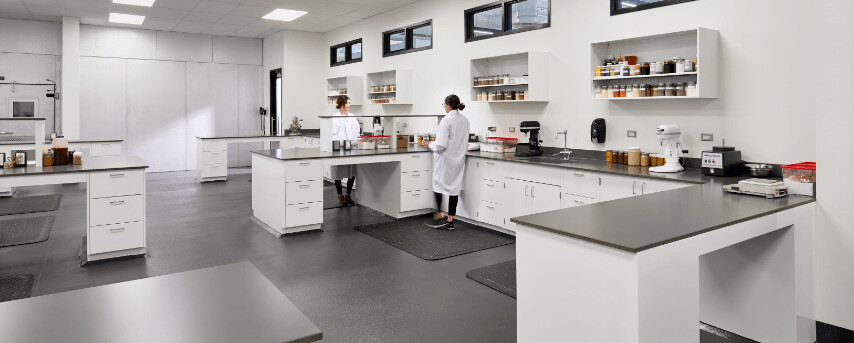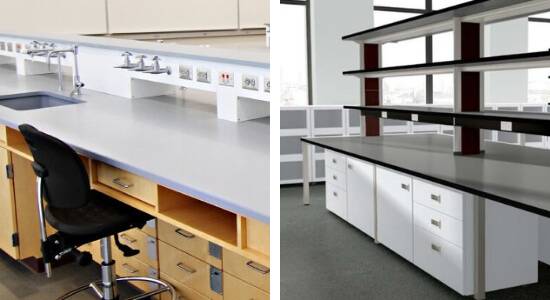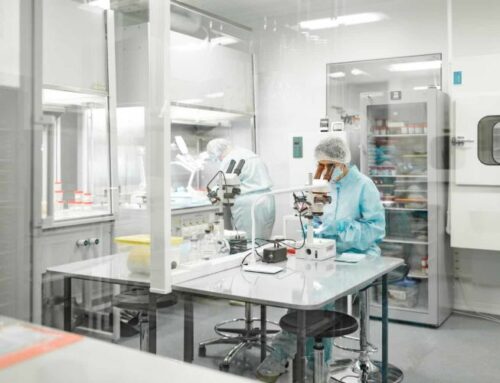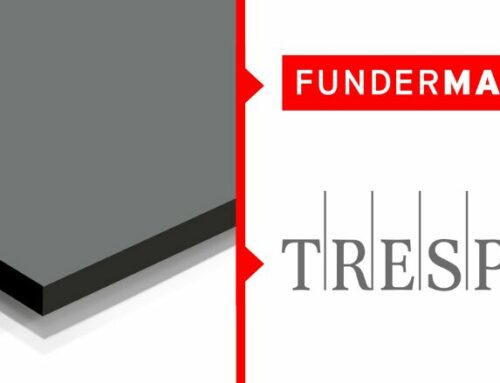Comparing Phenolic Resin Vs Epoxy Resin Countertops
Selecting the right countertop material for your lab application is very important. Laboratory work surfaces must maintain integrity under regular use, and occasionally experience high heat or chemical contact.
The primary difference between phenolic resin and epoxy resin countertops is their cost and thermal resistance to prolonged heat exposure above 350°F.

Epoxy resin is commonly used in laboratories, and has a high level of heat resistance. Phenolic resin is sometimes referred to by common brand names, such as TRESPA and FunderMax. Phenolic resin countertops are also commonly used in labs, since they are cost-effective and durable.
Epoxy Vs Phenolic Resin Comparison
| Comparison | Phenolic Resin | Epoxy Resin |
|---|---|---|
| Cost | $$$ | $$$$ |
| Application | Moderate: Ideal for worktops where steady use and frequent cleaning is expected. | Heavy: Laboratories requiring chemical and flame resistance. |
| Heat Resistance | Up to 350°F | 350°F+ |
| Weight | Moderate | Heavy |
| Lead Time | 4-6 weeks. (Standard stock sizes are available with shorter lead times.) 2-3 week lead times available for 10-15% price increase. | 5-7 weeks. (Standard stock sizes are available with shorter lead times.) 2-3 week lead times available for 10-15% price increase. |
| Base Composition | Resin, *chemical resistant film, overlay paper, kraft paper. | Epoxy resin, silica & pigment for color. |
| Moisture Resistance | Moderate | Moderate |
Epoxy Resin Countertop Material
Epoxy resin has been the industry standard for many decades. It is a heavy, tough material that has high resistance to heat. Laboratories where continuous heat over 350°F is expected would typically consider this material.

Only two epoxy resin countertop manufacturers exist in the US. This means lead times are longer and the cost for the finished product is higher. Additionally, epoxy resin tops are heavier and generate slightly higher shipping costs. CFI has long standing relationships with both companies and is able to customize our offerings to you.
All of these factors must be considered when putting together a budget for lab design, retrofit or expansion.
Epoxy Resin Top Material Composition
Epoxy resin countertops are created from a mix of epoxy resin, hardeners and silica. A curing process permanently sets the molded sheets of the material. The epoxy resin slabs have a high level of tensile, flexural, and compressive strengths thanks to the manufacturing process.
Phenolic Resin Countertops
Phenolic resin provides many of the same benefits as epoxy resin, but at a lower cost and with a higher degree of design flexibility. This material is commonly referred to by brand names, such as TRESPA, FunderMax and Wilsonart SPC.

Unlike epoxy resin, phenolic resin is not rated to resist high heat for sustained periods of time. It is commonly used in areas where frequent cleaning is expected, since it has good moisture and bacterial resistance. Applications include medical, bioscience and clinical environments.
Phenolic resin is generally much easier to fabricate and customize. A wider range of colors are also available to match specific applications, or designs.
Phenolic resin also has applications beyond the lab worksurfaces. Slabs are available in different grades, including standard, chemical resistant or fire rated. Standard grades are commonly used for casework and in medical offices. Chemical and fire rated grades find applications in labs, elevators and airports.
Phenolic Resin Top Material Composition
Phenolic resin is manufactured from phenol and formaldehyde. Synthetic polymer is used to saturate multiple layers of kraft papers, which are fused together using heat and pressure. The end result is a solid surface that is durable and provides a level of heat and chemical resistance.
Choosing the Right Countertop Material
Laboratory countertop material selection is heavily based on specific design and application needs. If your lab requires a countertop that can withstand continuous heat over 350°F, epoxy resin might be a choice. Industrial and chemical labs typically find a need for epoxy resin worksurfaces.
If you do not need the ability to maintain continuous exposure to high heat, phenolic resin might be a better choice. It is less expensive, more readily available and highly customizable compared to epoxy resin. Common uses are in labs where regular use, cleanliness and hygiene are required.
Below are some additional questions to ask when considering lab countertop materials.
- What is your industry?
- What is the function of your lab?
- Will personnel be using chemicals or high heat?
- Are there any special design requirements, such as color?
- What is your lab design budget?
How Custom Fabricators Helps
Custom Fabricators has over 60 years of experience helping design, supply and install lab furnishings and equipment. Our experienced team can help you decide which countertop material is best for your application. All CFI crews and field installers are fully insured and trained to meet all job site requirements.
Contact us today with any questions or for a quote.





